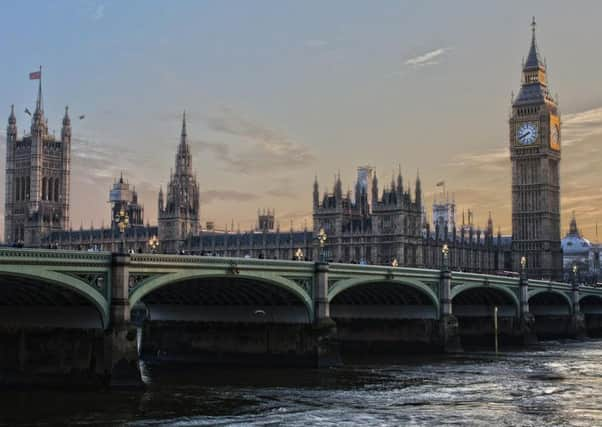William Wallace: Devolution can restore waning trust in politics


Far fewer people participate in democratic politics in Britain than 50 years ago. In 1970 more than five per cent of the electorate belonged to political parties; the Conservative Party had over a million members, Labour 500,000, the Liberal Democrats 250,000.
By 2013, scarcely one voter in 100 belonged to any party; the total membership of all three parties had sunk to less than half a million. A surge since 2015 in new members for Labour and the Liberal Democrats (and the SNP) has been offset by a further decline for the Conservatives, whose unpublished membership figures are estimated now at between 70,000 and 120,000, with a high proportion of men past the age of retirement. This is no longer a nationwide political movement, but a centralised campaign machine financed by large donors.
Advertisement
Hide AdAdvertisement
Hide AdThe importance of local government used to sustain local party activity and campaigning. But since the 1970s, successive governments have merged or abolished local councils in the pursuit of efficiency, creating massive metropolitan councils (like Leeds and Bradford) as the basic unit for local government. Since then they have lost control of education, housing and policing. Continuing cuts by central government, combined with restrictions on what taxes and charges local authorities can impose, have forced local government in Yorkshire and elsewhere to close services and sack staff.
Many of our local authorities have lost half of their funding since 2010, and are facing further reductions as austerity continues to bite.
England now has fewer elected representatives per million inhabitants than any other democratic country. The United States has layers of democratic government, each with its own budget and legal powers. France has a mayor for every commune (village); Germany has federal states and layers of local authorities below them. Here in England, in contrast, our central government is resisting allowing Yorkshire its own regional authority, preferring a City Region model led by elected mayors who – it is argued – will take a more business-like approach.
Many people in England no longer have any contact with elected authorities. In the larger cities, council wards have 12-15,000 voters each, too many for any councillor to know most of their voters. Schools are now run by academy trusts, accountable to the Department of Education in London. Buses and water supplies are run by private companies. Social care and children’s services have been squeezed by budget cuts. The belief that private companies provide better and cheaper public services than elected councils has combined with the drive to lower taxes to shrink the footprint of democratic government. And the ministers in London who are supposed to oversee this outsourced model turn over rapidly, without learning their briefs; the Prime Minister has, for example, just appointed the sixteenth housing minister in 18 years.
Advertisement
Hide AdAdvertisement
Hide AdSo politics now looks to many voters like a distant spectacle, played by ambitious professionals in Westminster, unconnected to the immediate issues most people face: child care, schools, the safety of their community, access to healthcare.
The links between local representatives and their communities, and between councillors and MPs, have become thinner. MPs themselves now spend much more time on individual casework, picking up the grievances that councillors could have dealt with a generation ago – often grievances against agencies in London or private contractors, now that so much power has been removed from local control.
We’re now in the middle of the largest political and constitutional crisis Britain has faced since the 1920s. Westminster is in chaos, with both major parties split down the middle, but sustained as organisations by our electoral system and their privileged access to funding. Popular disillusion with democratic politics has grown, allowing space for anti-democratic movements both on right and left.
We urgently need to rebuild confidence and trust in democratic politics, before political conflict gives way to street conflict. That can’t be done without bringing power back from Westminster to regional and local government, thus involving more voters in discussing issues that directly concern them with representatives they know.
William Wallace, from Saltaire, is a former minister and Lib Dem peer.